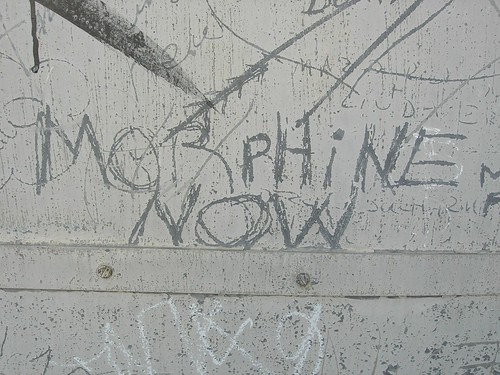Although, these days, my children would normally prefer to read to themselves than to have me read them a bedtime story, they both love it when I tell them stories of my family. Both my parents died before my daughters were born and so their only connection to their grandparents is through the people I conjure up with my stories. I tell them the stories my mother told me; sitting on my bed when I was home sick, she would tell me about her fights with her brother, about the family vacations to Butlins, a somewhat cheesy English vacation resort, and other stories that I would make her repeat over and over. And now my children ask me to tell them these stories, even though they can repeat them almost word for word.
Stories are important. They help us frame who we are, personally, culturally, professionally, morally. When we call up a friend and tell our latest love woes, we're telling a story; when we go for a job interview, we tell the story of our career so far. There are many types of stories, but one kind is a story that creates and shares a vision of the future, aiming to inspire people to follow the storyteller. As Steve Denning quotes in his book, The Leader's Guide to Storytelling, “Winning leaders create and use future stories to help people break away from the familiar present and venture boldly ahead to create a better future…they help others understand why and what they must do to get there.” Denning gives examples of some of the most powerful uses of future storytelling, Martin Luther King's, “I have a dream” speech and Winston Churchill's, “We shall fight them on the beaches.”
I listened to President Obama's speech on Wednesday night in Arizona; it was inspiring, moving, and heartfelt as he wove the victims' stories into a compelling narrative. He told the story of the 9-year old victim, Christine Taylor Green, urging the American people to envision a different kind of future, a future where “…our democracy is as good as Christina imagined it. I want America to be as good as she imagined it.” It was a powerful speech that, while seeming to sidestep partisan politics, instead urging all sides to abandon “the usual plane of point scoring and pettiness that drifts away in the next news cycle”, extremely effectively scored huge political points – of course. Obama was presidential, an inspirational leader.
This speech was a vivid reminder of why people voted for him in 2008. Yet, what really struck me was this thought: clearly, this man knows how to use storytelling to inspire and lead, so why didn't he do a better job of this selling healthcare and TARP (amongst other, wildly unpopular policies). Don't get me wrong, I know he tried, but somehow he seemed to never manage to strike the same notes that he did the other day. And he should have been able to.

